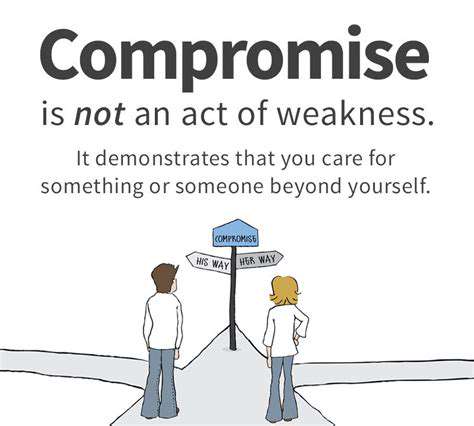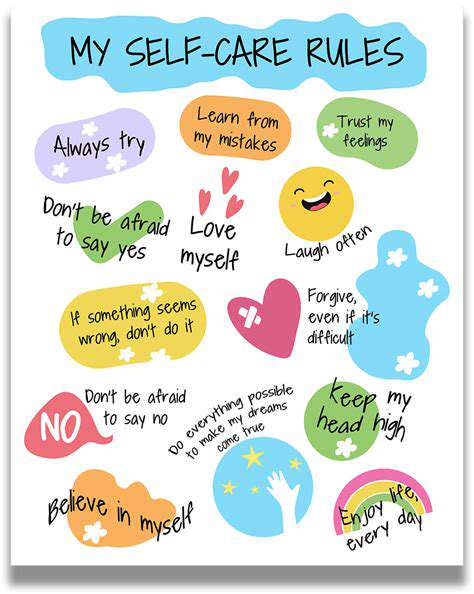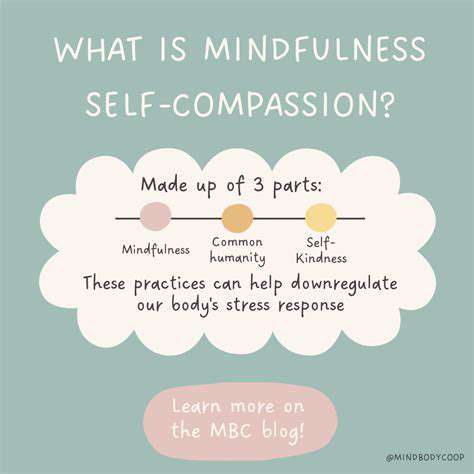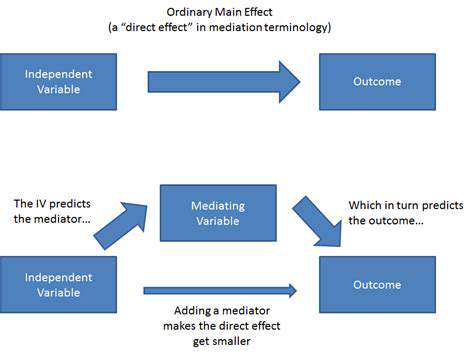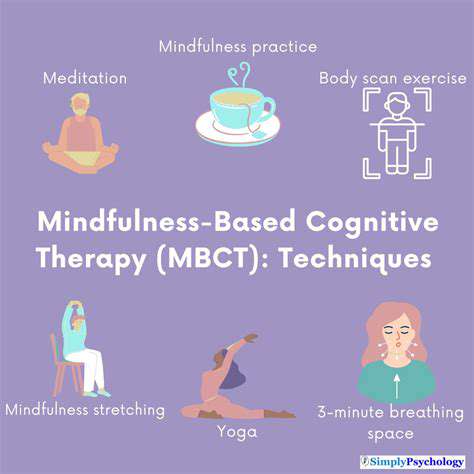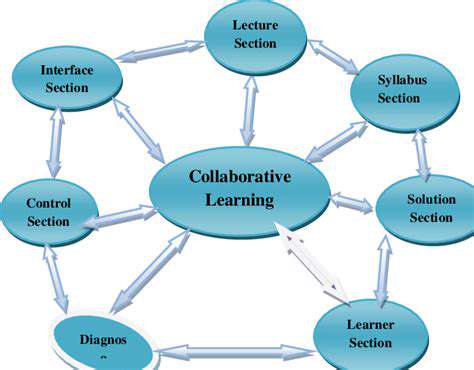How to Avoid Conflict with Your Ex
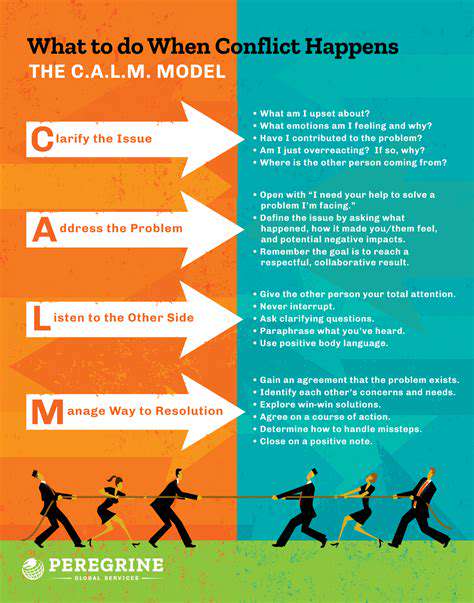
Managing Emotional Responses in Challenging Encounters
Understanding Your Triggers
Identifying the specific situations, people, or topics that consistently evoke strong emotional responses is crucial for managing conflict effectively. Taking time to reflect on past interactions where you felt overwhelmed or frustrated can help you pinpoint patterns. This self-awareness is the first step in proactively managing your reactions, rather than reacting impulsively. Understanding your personal triggers allows you to anticipate potential conflicts and develop strategies to mitigate their impact.
Consider journaling your experiences or seeking support from a therapist or trusted friend. This process will help you gain insights into your emotional landscape and learn to recognize early warning signs of escalating tension. Recognizing your triggers gives you the power to navigate challenging situations with greater composure.
Developing Emotional Regulation Skills
Emotional regulation involves learning techniques to manage intense feelings, preventing them from escalating into conflict. Deep breathing exercises, mindfulness meditation, and progressive muscle relaxation can be invaluable tools. Practicing these techniques in non-confrontational settings builds resilience and allows you to effectively employ them during challenging encounters.
Recognizing and labeling your emotions is an important component. Instead of being overwhelmed by a feeling, acknowledge it (I'm feeling frustrated). This awareness provides a crucial bridge between feeling and responding. Developing a toolkit of emotional regulation skills empowers you to navigate stressful situations with greater control.
Active Listening and Empathy
Actively listening to the other person's perspective, even if you strongly disagree, is fundamental to conflict resolution. Trying to understand their viewpoint, acknowledging their feelings, and reflecting back what you hear demonstrates respect and fosters a more productive dialogue. This approach helps to de-escalate tension and create a space for understanding.
Empathy is an essential component of active listening. Attempting to understand and share the other person's feelings, even if you don't necessarily agree with them, fosters a sense of connection and shared understanding. By practicing empathy, you create a safe space for open communication and problem-solving.
Communication Techniques for Constructive Dialogue
Clear and concise communication is key to avoiding misunderstandings and fostering constructive dialogue. Using I statements to express your feelings and needs, avoiding accusatory language, and focusing on specific behaviors rather than generalizing about the other person's character can significantly improve communication effectiveness. This approach promotes a respectful atmosphere where everyone feels heard and understood.
Choosing the right time and place for a conversation is critical. Avoid engaging in discussions when you or the other person is stressed or rushed. Creating a calm and neutral environment sets the stage for productive communication, enabling solutions to be identified, and leading to a clearer understanding of each other's perspectives.
Perspective-Taking and Problem-Solving
Stepping outside your own perspective and considering the other person's point of view can significantly improve conflict resolution. Attempting to see the situation from their side, even if you disagree, can help you find common ground and identify potential solutions. This willingness to consider different viewpoints fosters a collaborative environment where everyone feels heard and valued.
Once both parties understand each other's perspectives, focus on finding mutually agreeable solutions. Collaborative problem-solving involves identifying shared interests and looking for options that benefit all parties involved. By engaging in active problem-solving, you are working towards a resolution that satisfies everyone's needs and fosters respect.
Maintaining Boundaries
Understanding and respecting your personal boundaries is essential for preventing conflicts and maintaining your emotional well-being. Knowing what you're willing to tolerate, and what you're not, is crucial for managing stress and protecting your emotional health during challenging interactions. Establishing boundaries involves recognizing your limits and communicating them assertively and respectfully.
It's important to recognize when a situation is becoming too demanding or harmful to your well-being and know when to disengage. Setting boundaries empowers you to protect your emotional health in challenging situations. This self-preservation isn't about being uncaring, it's about setting healthy parameters to maintain your own emotional balance.
The Power of Letting Go and Moving Forward

Unburdening the Mind
Letting go is a crucial step toward Personal Growth and liberation. It's about releasing the grip we have on past experiences, regrets, and anxieties. By acknowledging and accepting these burdens, we can create space for new opportunities and a lighter heart. This process isn't about forgetting, but rather about understanding that holding onto the past prevents us from fully embracing the present and future.
This process of letting go often involves introspection. We need to examine the emotions and thoughts associated with these burdens. By understanding these emotional patterns, we can begin to release the negativity they bring. Identifying and confronting these triggers is often the first step in developing a healthier approach to living.
Embracing Change
Life is constantly in motion, and change is inevitable. Denying this truth can lead to frustration and stagnation. Embracing change as a natural part of life allows us to adapt, learn, and grow. Change often brings unexpected opportunities for growth and happiness. Courage and resilience are necessary to navigate the challenges that come with transformation.
Sometimes, change can be daunting. However, by taking a step-by-step approach and focusing on the positive aspects of the transformation, we can navigate the challenges with greater ease. This proactive mindset will allow you to approach challenges with a sense of strength and determination.
Prioritizing Present Moments
Focusing on the present moment allows us to fully experience life's beauty, joy, and love. The past is already gone; the future is yet to come. The only real moment we have to grasp is the present. By focusing on the here and now, we lessen our stress and anxiety.
Practicing mindfulness or meditation can be helpful in cultivating present-moment awareness. Taking time for self-reflection and focusing on our immediate sensations, thoughts, and feelings are also valuable techniques.
Releasing Negative Emotions
Negative emotions like anger, fear, and sadness are often a response to past experiences or perceived threats. While it is not healthy to repress these feelings, learning to process and release them in a healthy manner is vital for emotional well-being. Allowing ourselves to feel these emotions fully, without judgment, is the first step to releasing them.
Cultivating Inner Peace
Letting go and moving forward leads to a greater sense of inner peace. It's about accepting what we cannot control and focusing on what we can influence in our lives. This inner peace can manifest in a sense of serenity and contentment, even in the face of adversity.
This internal quietude allows us to make more mindful choices and pursue our goals with greater clarity. We become less reactive and more responsive to situations, leading to a deeper understanding of ourselves.
Developing Resilience
The ability to bounce back from setbacks and challenges is a valuable skill. Letting go allows us to detach from the outcome of a situation and to focus on the process of learning and growing. Letting go of expectations and clinging to specific outcomes can enhance resilience. By accepting that outcomes are uncertain, we can better deal with disappointment or failure.
Developing resilience is not a destination; it's a journey of growth and learning. The ability to adapt and persevere will help you navigate even the most difficult moments in life, making you stronger and more resourceful in the process.
Finding Purpose and Direction
Letting go of the past, embracing change, and prioritizing present moments allows us to have space to explore our true purpose and direction. When we are not burdened by anxieties or regrets, we can see possibilities and opportunities more clearly. This clarity can lead to significant changes and greater fulfillment in life.
With a renewed sense of purpose, we can make more intentional choices and take steps towards achieving our aspirations. It's about aligning our actions with our values and moving forward with a clear vision of where we want to go and the impact we want to make.
Read more about How to Avoid Conflict with Your Ex
Hot Recommendations
- divorce asset division legal checklist
- how to overcome breakup shock step by step
- divorce self growth strategies for single parents
- how to overcome divorce trauma quickly
- emotional recovery tips for breakup survivors
- divorce breakup coping strategies for adults
- how to find effective divorce counseling online
- divorce custody battle resolution strategies
- how to find affordable breakup counseling services
- best co parenting solutions for divorce cases


